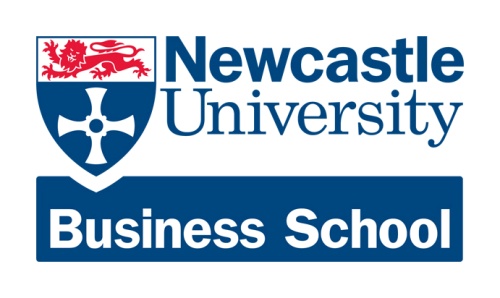

Accounting and finance
ACC1011
Introduction to management accounting & finance module outline
2012-13
A. AIMS
To help students acquire a basic foundation of knowledge and skill in management accounting & finance.
B. LEARNING OUTCOMES
(i) Intended knowledge outcome
To help students acquire:
understand the relevance of cost classification to planning, decision-making and control.
understand the process of controlling, allocating and apportioning production costs of materials, labour and overheads to products and the implications on pricing.
understand profits using absorption costing and marginal costing.
explore the applications of cost-volume-profit analysis and the relationship between pricing decisions and cost considerations.
examine the process of budgeting.
understand standard costing, variance analysis and flexible budgeting.
understand the main features of performance reporting.
examine the goals and governance of corporations, and the role of the financial manager.
understand the time value of money and the use of the present value technique.
examine the valuation of stocks and bonds using present value calculations.
examine investment appraisal problems using the net present value rule.
be aware of alternative methods of investment appraisal used in business.
understand simple models of working capital management.
understand the concepts of dividends, costs of capital and gearing.
examine the role of risk in valuation and investment appraisal.
examine techniques for financial forecasting.
Intended skills outcome
To enable students to:
understand at an introductory level of the academic discipline of management accounting within its environmental context.
deal with various problems of accounting relating to internal management decision-making, planning and control.
apply recognised management accounting reporting practices to internal management.
develop analytical skills relating to valuation and financial management
C. TEACHING AND LEARNING METHODS
The teaching and learning methods used in this module include lectures, workshops and help sessions. Students are expected to attend lectures and allocated workshop sessions. Optional help sessions are available for students requiring further clarification on materials covered in the module. Students are also expected to read the prescribed literature.
Formal meetings will normally generate at least an equivalent amount of time which students must plan for themselves. Anyone finding it difficult in planning self-study should consult his/her Personal Tutor at the earliest opportunity.
D. READING REFERENCE
The essential customised text book for this module is - ACC1011: INTRODUCTION TO MANAGEMENT ACCOUNTING AND FINANCE.
E. METHODS OF ASSESSMENT
This module will be assessed by means of:
One formal unseen examination in January 2013 which will make up 25% of the module assessment.
One formal unseen examination in May/June 2013 which will make up 75% of the module assessment.
The examination dates will be announced when available.
For University purposes the pass mark for this module is 40%, calculated from the combination of the semester one and semester two exam marks. If a student achieves less than 40% in total at the first sitting, re-sit papers must be taken for BOTH semester one and semester two exams (to be examined at one sitting in August), regardless of whether or not the student achieved a pass grade with the semester one paper in isolation.
If a student has Personal Extenuating Circumstances (PECs) which have been authorised and allow them to treat the re-sit exam as a first sitting, then they may re-sit only the affected paper – semester one or semester two – rather than both papers, if applicable.
For ICAEW accreditation purposes students will need to achieve a mark of at least 50%.
F. LECTURE TIMES & VENUES
There will be two lectures per week in Herschel Building at the following times:
Monday 10 – 11 am in Curtis Auditorium
Wednesday 12 – 1 pm Lecture 1
STAFFING INFORMATION
Lecturers
Dr Shanta Davie (Module Coordinator)
shanta.davie@ncl.ac.uk
Dr Dylan Che
bo.che@ncl.ac.uk.
Workshop Leaders
Tom Cuckston: tom.cuckston@ncl.ac.uk
Helen Currie: helen.currie@ncl.ac.uk
Gill Holden: gill.holden@ncl.ac.uk
SCHEDULE OF LECTURE TOPICS
SEMESTER ONE |
|
|
|
||
Week |
Week Commencing |
Topic |
Workshop |
||
|
|
Introduction to the module: ACC1011 |
|
||
5 |
01/10/12 |
An introduction to management accounting Classification of costs |
|
||
|
|
|
|
||
6 |
08/10/12 |
Corporate Finance and Key Concepts
|
|
||
7 |
15/10/12 |
Product costs |
W1 |
||
|
|
|
|
||
8 |
22/10/12 |
Future values and present values |
|
||
|
|
|
|
||
9 |
29/10/12 |
Product costs |
W2 |
||
|
|
|
|
||
|
05/11/12 |
The term structure of interest rates |
|
||
10 |
|
Bonds |
|
||
|
|
|
|
||
11 |
12/11/12 |
Job costing |
W3 |
||
|
|
|
|
||
12 |
19/11/12 |
Equity value |
|
||
|
|
|
|
||
13 |
26/11/12 |
Cost-volume-profit analysis |
W4 |
||
|
|
|
|
||
14 |
03/12/12 |
Alternative methods of investment appraisal |
|
||
|
|
|
|
||
15 |
10/12/12 |
Private study |
W5 |
||
16-18 |
VACATION |
||||
19 |
07/01/13 |
Private study |
|
||
20-21 |
UNIVERSITY ASSESSMENT PERIOD |
||||
SEMESTER TWO |
|||
Week |
Week Commencing |
Topic |
Workshop |
22 |
28/01/13 |
Budgeting
|
W6 |
23
|
04/02/13 |
Working capital management
|
|
24 |
11/02/13 |
Standard costing |
W7 |
|
|
|
|
25 |
18/02/13 |
Performance evaluation |
|
|
|
|
|
26 |
25/02/13 |
Private study |
W8 |
|
|
|
|
27 |
04/03/13 |
Private study |
|
|
|
|
|
28 |
11/03/13 |
Private study
|
W9 |
29-32 |
VACATION |
||
33 |
15/04/13 |
Private study
|
|
34 |
22/04/13 |
Revision
|
|
35 |
29/04/13 |
Finance Help Session I |
|
36 |
06/05/13 |
Finance Help Session II |
|
37 |
13/05/13 |
Finance Help Session III |
|
|
|
|
|
38 – 41 |
UNIVERSITY ASSESSMENT PERIOD |
||
